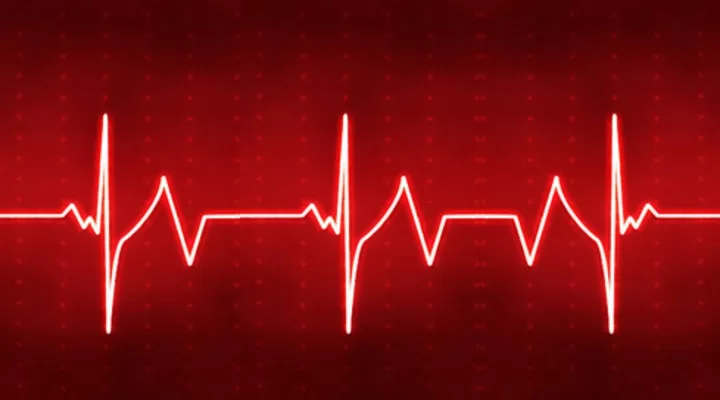FEELING MY HEART BEAT

Do you often feel your heart beat too fast? You might need to see the electrophysiologist.
THE heart, opines National Heart Institute (better known by its Malay acronym IJN) senior consultant cardiologist and lectrophysiologist Dr Azlan Hussin, is like a house.
According to him, you have the general cardiologists that look at the general well-being of “house” and detect early signs of trouble.
Then there are the interventional cardiologists, basically the “plumbers and contractors”, who are capable of correcting the “piping” system, as well as the structural, cardiovascular and congenital abnormalities of the heart, by using invasive treatment modalities such as coronary angioplasty.
“The electrophysiologist, in that context, is an electrician,” he adds.
“We are trained to deal with the electrical system of the heart – its wiring and electrical transmission, as well as the aftermaths associated with an abnormal electrical system.
“It is a subspecialised field and the treatment is individualised to the patient. It is not a one-solution-fits-all speciality.”
Palpitations are actually a subjective feeling that your pulse, which you can feel at your wrist as seen in this filepic, is beating too fast.Beating too fast
One of the conditions that an electrophysiologist treats is palpitations, which Dr Azlan describes as a subjective feeling that patients complain of when they feel their hearts are beating fast.
Patients may also complain of giddiness, while some may experience fainting spells, as the heart rate is extremely fast or slow.
“The job of an electrophysiologist is to figure out through the complaint if there is any problem at all, confirm the issue and suggest a treatment plan,” he says.
“If it’s a fast heart rate problem, what kind of fast heart rate is it? Is it stable or not stable? Is it a focal issue or a circuit issue?
“Where is/are the problems located, and what would be the kind of treatment best suited for the patient?
“This usually is the general kind of approach that governs most of the patients that come in with a complaint of palpitation.” There are two kinds of palpitation: primary and secondary.
Primary palpitation occurs when the palpitation is the main issue and it is not associated with an underlying problem.
Involving the upper chamber of the heart, supraventricular tachycardia (SVT) causes one’s heart to beat very fast for reasons aside from exercise, high fever or stress.
SVT is mostly caused by abnormal electrical generation or conduction circuits in the heart.
It can also be triggered by medications or be present from a very young age as with Wolff-Parkinson-White syndrome.
The other condition, ventricular tachycardia, is a fast heart rhythm that begins in the lower chamber of the heart.
While some forms of fast heart beats may only cause symptoms, others may be life-threatening.
While the cause is sometimes unknown, most cases are caused by heart disease, including a previous heart attack, congenital heart defect, dilated cardiomyopathy and myocarditis.
It can also happens after heart surgery or because of certain medications.
In terms of secondary palpitations, the condition can occur due to stress, fever, viral infection or hyperthyroidism.
If this happens, the treatment prescribed is for the underlying cause.
Gathering “evidence”
When it comes to diagnosing the problem causing palpitations, the first thing to examine is a patient’s ECG (electrocardiogram), which will tell the doctor which part of the heart is affected.
A fever is one of the secondary causes of palpitations, as is stress, infections and hyperthyroidism. -TNSHowever, problems can arise if the palpitation does not happen during the time the ECG is taken.
This is where other devices are used to detect the palpitation.
“The doctor will usually ask about the characteristics of the palpitations.
“How is the onset? Is it sudden, gradual, persistent, intermittent, regular or irregular?” says Dr Azlan.
“A palpitation that comes every day is, of course, easier to diagnose than one that comes once a week or once every two to three months.
“Infrequent palpitations that seldom trouble the patient may be difficult to diagnose.” There are a few methods to document palpitations and each one is different in approach, as it depends on the frequency and manifestation of the palpitations.
Among the various devices used are the Holter monitor, heart cards, event monitors like the King of Hearts monitor, and the implantable recording device.
The Holter is used to record a patient’s electrical activity of the heart for 24 hours, while the King of Hearts is used when the palpitations happen infrequently, for example, once every few weeks.
“It is a device that can basically record the heartbeat when the patient has the symptoms.
“They have the device in their pocket and when they experience palpitations, they put the device to their chest and record their
ECG during the palpitations,” explains Dr Azlan.
For those who experience fainting spells during a palpitation episode or only experience palpitations infrequently over a long period of time, there is the implantable recording device. “This device can last for one or two years.
The device will record the ECG when symptoms occur,” says Dr Azlan. “In approaching a patient with palpitations, we have a lawyerlike mentality.
“Before we propose a treatment plan, we need to gather the evidences first. “The primary evidence will usually be the ECG when the palpitations occur.
“Once we have the primary evidence, as well as other supporting evidence like the echocardiogram, we will then propose a treatment plan.”
Treatment plan
Dr Azlan observes that electrophysiologists are like electricians in that they are trained to deal with the electrical system of the heart. – IJNIf the palpitation is extremely infrequent, non-life-threatening and doesn’t bother the patient much, they will be put under clinical observation.
However, if this is not the case, then medication or procedures may be recommended.
Dr Azlan says that there are a few types of medications in the market, each with its own risks and benefits.
“We need to find the right one to suit the patient,” he says. If necessary, certain procedures will be carried out, which, in certain cases, an cure the patient of their palpitations.
This includes radiofrequency ablation where part of the electrical conduction system of the heart is ablated by using heat generated from radiofrequency energy delivered directly to troubled spots in the heart.
“Electrophysiology study delivers a postulative possibility to the electrophysiologist of the functional and anatomical hypothesis of where the problem is located.
“Based on this information, the electrophysiologist will deliver radiofrequency energy to the troubled foci within the heart and modify this abnormal electrical generation or conduction site.
“If the postulation is correct, the troubled foci will be ablated and the palpitations will not trouble the patient again.
“If it doesn’t work, then you need to postulate again.” Most of the time, the likelihood of the condition recurring once treatment has been administered is less than 1% for the majority of palpitations arising from the upper chambers of the heart.
IJN carries out about has about 450 to 550 radio frequency ablation cases of various complexities yearly.
“Patients who have benefitted from IJN’s expertise in electrophysiology range from a couple of months old to 96 years,” says Dr Azlan.
“If the palpitations are the type that can be cured and the patient remains well after their ablation, we will usually follow them up in our clinic once or twice before we discharge them completely.”











